The History of Our People – Teslin Tlingit
Teslin is located in south-central Yukon in Northern Canada and is home to approximately 480 people of which two-thirds are Inland Tlingit. The name Teslin is derived from the Tlingit word ‘tas t’en’ or ‘long sewing sinew’ which refers to the 148 km Teslin Lake that surrounds the community’s southern border. Teslin Tlingit are descendants from the Taku Qwan who moved inland in the 18th century.
Teslin Tlingit culture includes five clans: Kukhhittan (Raven); Ishkitan (Frog); Yanyedi (Wolf); Deshitan (Beaver); and Dakhlawedi (Eagle). The clan system continues to have an important and integral role in Teslin Tlingit society and their political traditions (Teslin Tlingit Council 2009).
Why Research Traditional Foods?
For Teslin Tlingit, traditional foods are central to cultural health and well-being. Over thousands of years, Aboriginal peoples in the north have adapted to a food system that is based on northern populations such as moose, caribou, fish, small games, berries and medicines. Chronic diseases are increasing, which the Tlingit believe strongly is a result of not being able to practice our traditional activities and harvesting on the land/water, resulting in greater reliance on market foods and a change in diet.
It is the youth and future generations who will be facing the greatest impacts of climate change in the coming years, and they will be responsible for adapting to the changes. It is essential to focus attention on building capacity and knowledge on climate change with the youth, have a greater understanding of our perceptions of climate change and food security, and increase our capacity to do research and take action on climate change/other environmental health issues.
Project Summary – How We Are Leading the Way
This research is linked to the health of the Teslin Tlingit People because traditional food sources are essential to our health and well-being. The Teslin Tlingit Council (TTC) is currently developing a Strategic Plan and environment was one of the top five priorities. The information resulting from this project will contribute to the Strategic Plan as well as the future development of a climate change food security plan for the region.
The work of this project has been done by the citizens of Teslin, coordinated by the Health and Social Department and Education Department of the Teslin Tlingit Council. Over the course of the summer, five Teslin Tlingit youth were hired to conduct interviews with TTC citizens and trained in filmmaking. The project has been an important opportunity for the Youth and the Teslin Community to become engaged with Western Science and Traditional Knowledge and to learn about and understand the current circumstances related to climate change and health, and how that relates to developing strategies and solutions to deal with the long-term health of the Teslin Tlingit Community.
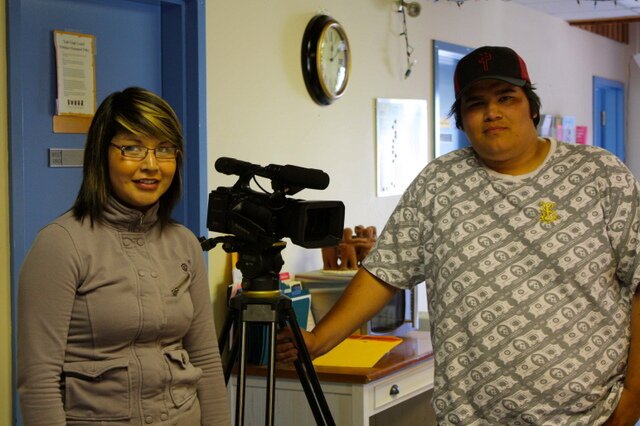

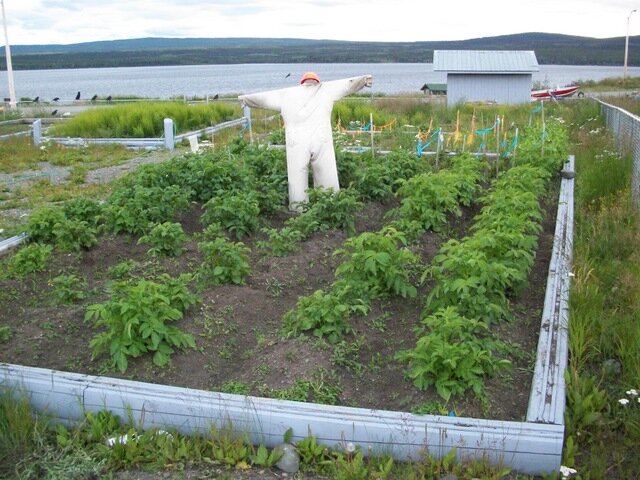
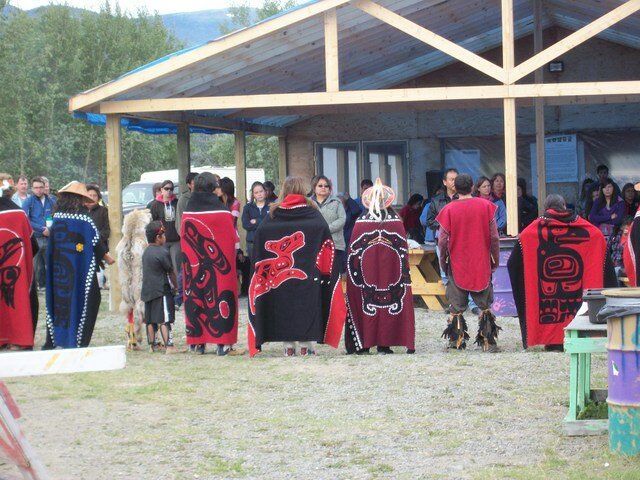
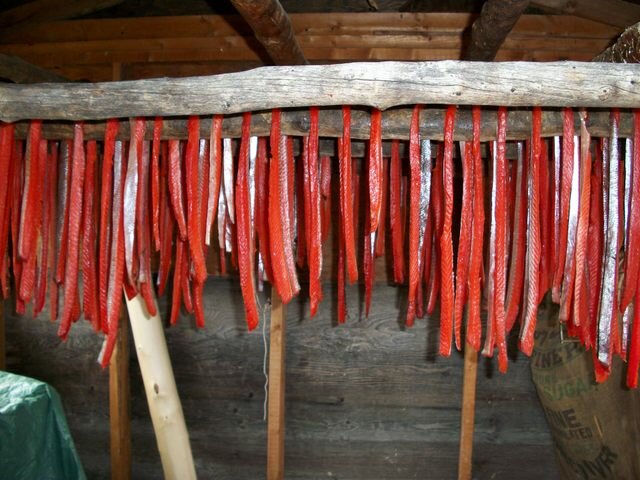
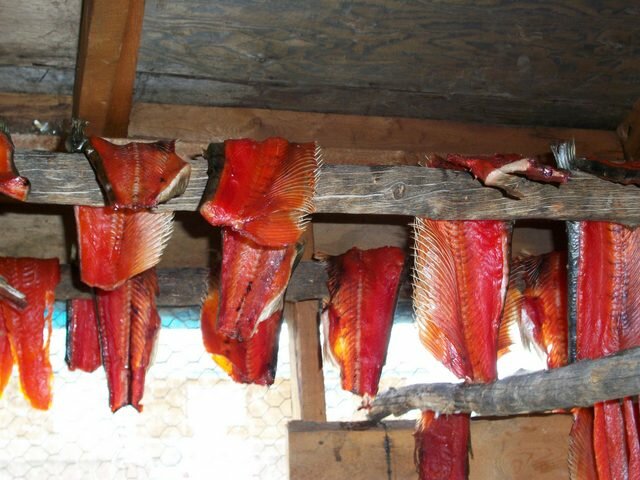

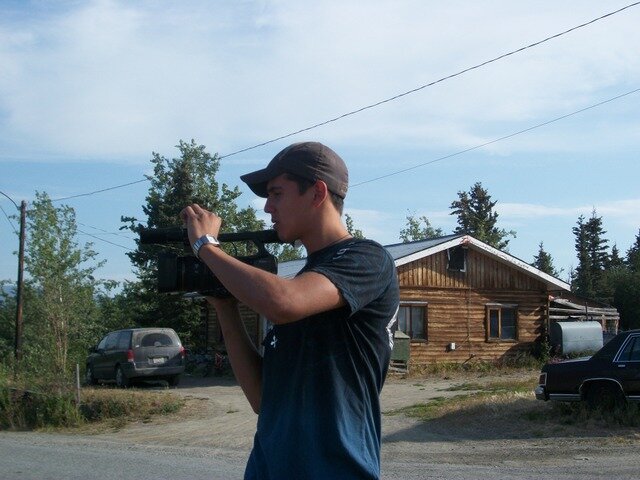
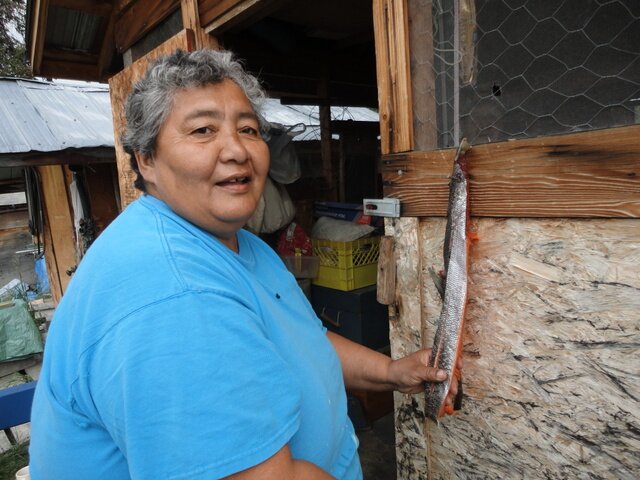
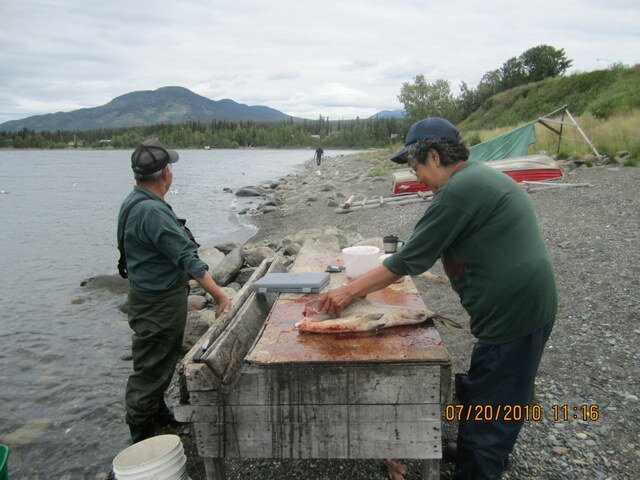
Teslin Tlingit Citizen Wisdom
Here are several key topics that TTC citizens considered important when talking about climate change and health:
Land and Water; Land & Water Protection; Gardening; Harvesting off the Land; Berry Harvesting; Hunting and Fishing; Decline of Traditional Foods; Identity and Culture; Preparing for Hard Times; and Climate Change and a Changing World.
Resources Developed
- Fifteen minute film entitled “Teslin’s Voice”
- Power Point presentations
- Photos
- Community Summary Report
- Five youth trained on film production
Capacity Building – Connecting the Guidance of the Past with the Needs of Today
This project strived to:
- Prepare Teslin Tlingit future leaders to make decisions that involve planning for both the management of decreased wildlife populations and the subsequent impacts on food security as well as preserving the Tlingit culture in light of a rapidly changing environment;
- Teach Teslin Tlingit youth and others about healthy foods and food security;
- Teach youth about project design and implementation, how to conduct interviews, filming, and development of writing and presentation skills;
- Facilitate discussion and support the community in the future planning of adaptation actions in the face a changing environment; and
- Build capacity in the community of Teslin in researching skills and on taking actions regarding climate change and health impacts











